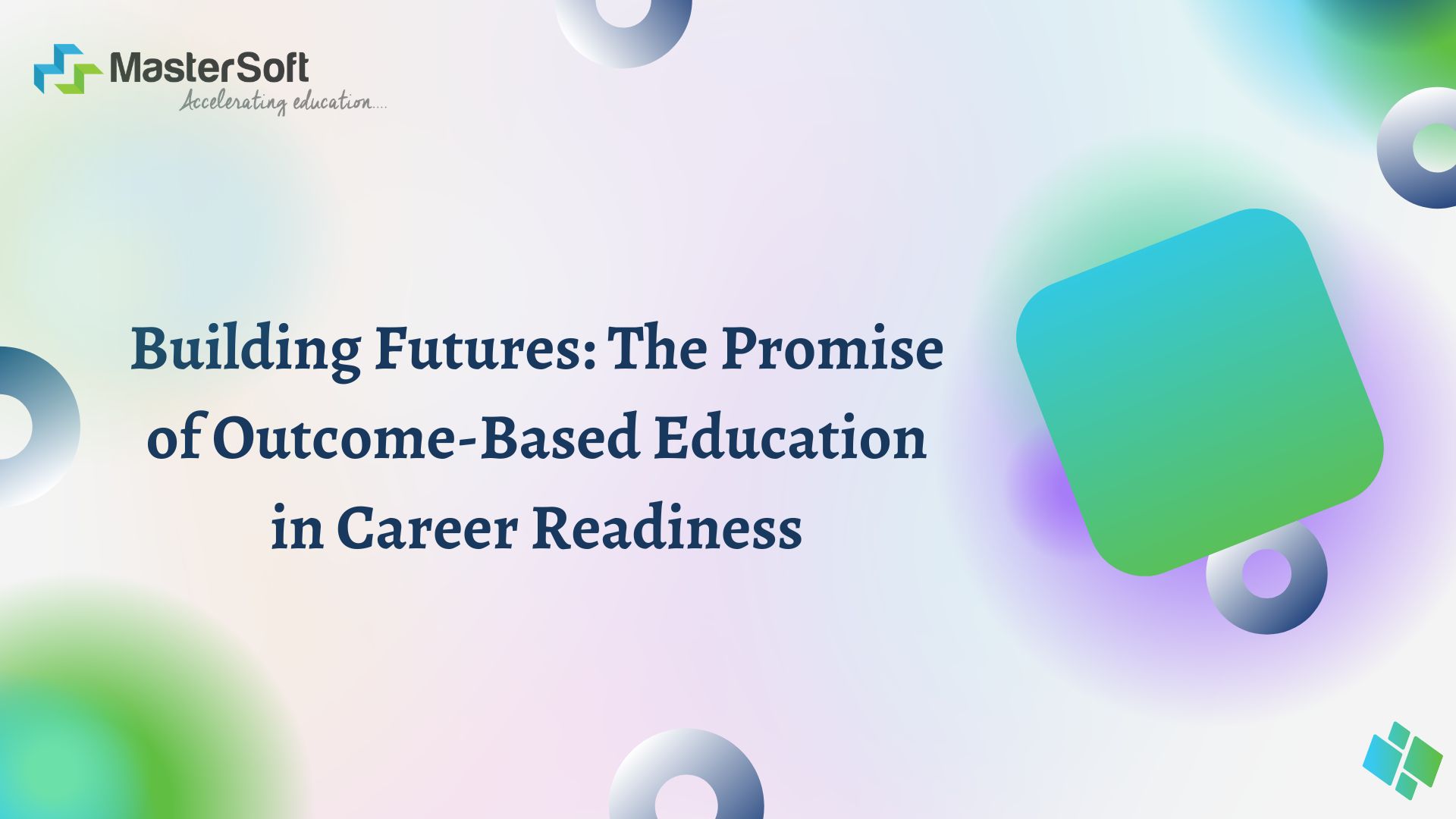In the ever-evolving landscape of education, the focus has shifted from mere accumulation of knowledge to the tangible outcomes students achieve. This shift has propelled the concept of Outcome-Based Education (OBE) into the spotlight, particularly in the realm of career readiness. OBE emphasizes measurable outcomes and the acquisition of practical skills necessary for success in the workforce. In this blog, we delve into the promise of Outcome-Based Education in shaping future careers and building a foundation for lifelong learning and adaptability.
Understanding Outcome-Based Education
Outcome-Based Education centers on defining specific, measurable learning outcomes that students are expected to achieve by the end of an educational program. These outcomes are derived from the needs of society, industry demands, and the aspirations of learners themselves. Unlike traditional education models that focus primarily on content delivery, OBE places emphasis on competencies, skills, and abilities that students can demonstrate.
At the heart of OBE lies the alignment between educational objectives, instructional strategies, and assessment methods. By clearly articulating what students should know and be able to do, educators can tailor their teaching approaches and assessment tools to ensure these outcomes are met effectively.
The Shift Towards Career Readiness
In today’s fast-paced and competitive job market, employers are increasingly seeking candidates who possess not only academic knowledge but also practical skills and competencies relevant to the workplace. This demand has propelled the integration of career readiness into educational frameworks, with Outcome-Based Education emerging as a promising approach to bridge the gap between education and employment.
Career readiness encompasses a spectrum of skills, including critical thinking, problem-solving, communication, teamwork, adaptability, and digital literacy, among others. These skills are not only essential for securing employment but also for navigating the complexities of modern workplaces and advancing in one’s career.
Advantages of Outcome-Based Education in Career Readiness
- Alignment with Industry Demands: OBE enables educational institutions to tailor their programs to align with the evolving needs of industries. By incorporating input from employers and industry experts, educational outcomes can be designed to reflect the skills and competencies valued in the job market.
- Focus on Skill Development: Rather than solely focusing on theoretical knowledge, OBE emphasizes the development of practical skills and competencies that are directly applicable to real-world scenarios. This hands-on approach better prepares students for the challenges they will encounter in their future careers.
- Measurable Learning Outcomes: OBE provides clear and measurable learning outcomes, allowing educators to assess students’ progress and proficiency effectively. This transparency facilitates targeted interventions to support students who may require additional assistance in mastering specific skills.
- Promotion of Lifelong Learning: By instilling a mindset of continuous improvement and adaptability, OBE encourages lifelong learning beyond formal education. In today’s rapidly changing job market, the ability to learn new skills and adapt to emerging technologies is crucial for career advancement and employability.
- Enhanced Employability: Students who undergo Outcome-Based Education are better equipped to demonstrate their skills and competencies to prospective employers. This increased transparency in learning outcomes enhances graduates’ employability and facilitates smoother transitions from education to the workforce.
Implementing Outcome-Based Education for Career Readiness
Effective implementation of Outcome-Based Education requires collaboration among educators, students, employers, and policymakers. Key strategies include:
- Stakeholder Engagement: Engage employers and industry stakeholders in curriculum design and review processes to ensure educational outcomes are aligned with workforce demands.
- Integrated Assessment Practices: Implement diverse assessment methods, including project-based assessments, simulations, portfolios, and performance evaluations, to accurately measure students’ attainment of learning outcomes.
- Professional Development for Educators: Provide ongoing professional development opportunities for educators to enhance their instructional strategies, assessment practices, and proficiency in incorporating career readiness components into the curriculum.
- Adaptive Learning Environments: Create flexible learning environments that foster collaboration, creativity, and critical thinking, allowing students to develop the skills necessary for success in diverse career pathways.
- Continuous Improvement: Regularly evaluate and refine educational programs based on feedback from students, alumni, employers, and other stakeholders to ensure relevance and effectiveness in preparing students for the workforce.
Conclusion
Outcome-Based Education holds immense promise in preparing students for successful careers in the 21st-century workforce. By focusing on measurable learning outcomes, practical skill development, and alignment with industry demands, OBE equips learners with the tools they need to thrive in an ever-changing job market. Through collaborative efforts and a commitment to lifelong learning, educators can build futures enriched with opportunities for career growth, innovation, and personal fulfillment.
